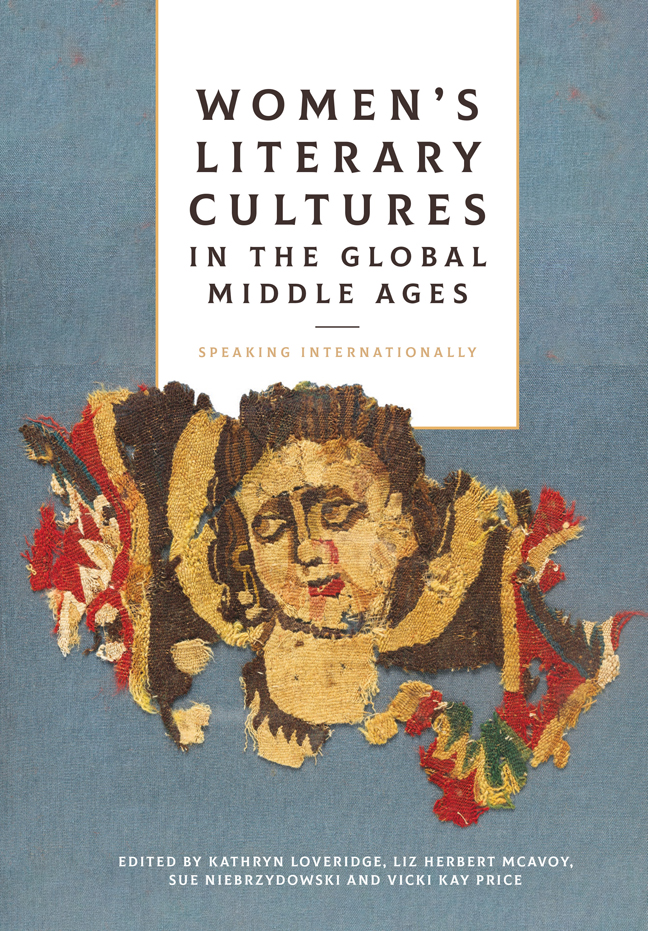Book contents
- Frontmatter
- Contents
- Foreword
- Acknowledgements
- List of Abbreviations
- Book part
- 1 Comparison and Dialogue
- 2 Constructing Gender and Genre
- 3 Saintly Performance and Marian Piety
- 4 Evidence and the Archives: Revisiting and Reconsidering
- Afterword: Intersectionality and Coalitions
- List of Contributors
- Bibliography
- Index
- Gender in the Middle Ages
4 - The Genre of the Late Medieval Personalised Orthodox Slavic Women's Miscellany: Three ‘Existential’ Questions
Published online by Cambridge University Press: 09 January 2024
- Frontmatter
- Contents
- Foreword
- Acknowledgements
- List of Abbreviations
- Book part
- 1 Comparison and Dialogue
- 2 Constructing Gender and Genre
- 3 Saintly Performance and Marian Piety
- 4 Evidence and the Archives: Revisiting and Reconsidering
- Afterword: Intersectionality and Coalitions
- List of Contributors
- Bibliography
- Index
- Gender in the Middle Ages
Summary
The aim of this contribution is to problematise and – where need be – to acquaint western medievalist scholarship with the originally Bulgarian genre-indicating term, the medieval women's miscellany (жeHCKи cбopHиK – or romanised: zhenski sbornik). After introducing the term and illustrating its corresponding text (or, better, manuscript) type with the help of its most conspicuous exponent, the 1360 Vidin Miscellany, I put forward three so-called ‘existential’ questions that problematise issues such as: the genre's label; the rationale of its existence as a separate genre; its limited applicability (so far, that is), to the Orthodox Slavic1 world; and the anti-feminist nature of this whole ‘undertaking’ of genre-labelling. In so doing, I hope to contribute to the dialogue established in this present volume and beyond between scholars of medieval women's writing in the west and those studying non-western women's relationship to the phenomenon of the book during the (later) middle ages.
‘WOMEN'S MISCELLANY’: THEMATISING THE BULGARIAN TERM ZHENSKI SBORNIK
The adjective zhenski is the Bulgarian for ‘female’, ‘feminine’, ‘woman’s’, whereas the meanings of the substantive sbornik can be ‘anthology’, ‘collection’ or ‘miscellany’. I choose ‘miscellany’ here, since this is the common translation of the word sbornik as it appears in the above-mentioned, most conspicuous exponent of the ‘text type’, the Vidin Miscellany (Bdinski sbornik). The combination of both words, that is to say, the genre label that will prove central to this present essay, was thematised for the first time more than 20 years ago by Adelina Angusheva-Tikhanova in a book chapter with the telling title: ‘In the Footsteps of an Extinct Genre: Towards the Typology of the “Women's Miscellanies”’. From the first page onwards, Angusheva-Tikhanova makes it clear that the genre of the ‘women's miscellany’ pertains to medieval manuscripts. That she does not use the more general term texts is highly significant: for her, the exponents of the genre are not texts in the sense of works of which we have one or more extant manuscripts or textual witnesses. Rather, they comprise a number of ad hoc composed manuscripts, each of them put together under particular historical and cultural circumstances. More specifically, these generically-defined manuscripts have to contain ‘texts devoted to women’. Moreover, again according to Angusheva-Tikhanova, ‘It is not necessary that they were written by women or commissioned by them; the unifying principle in this case turns out to be the semantic orientation of the texts included in the manuscripts.’
- Type
- Chapter
- Information
- Women's Literary Cultures in the Global Middle AgesSpeaking Internationally, pp. 83 - 102Publisher: Boydell & BrewerPrint publication year: 2023



